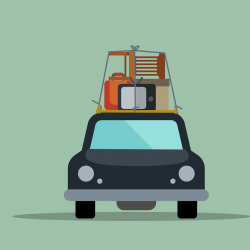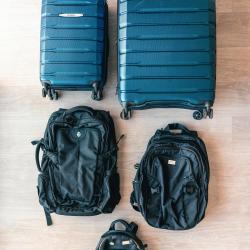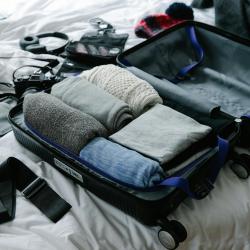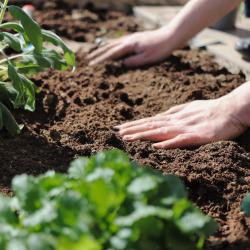Sustainable Travel Tips: Packing Light and Minimizing Waste
Sustainable travel isn't just about the destination; it's also about how we get there, how we behave once we're there, and even how we pack. By packing light and minimizing waste, travelers can significantly reduce their carbon footprint and contribute to a healthier planet.
Why Packing Light Matters
Packing light is one of the most effective ways to travel sustainably. Here's why:
-
Reduced Carbon Emissions: Lighter luggage means lighter aircraft, which in turn translates to less fuel consumption. According to estimates, every kilogram of weight saved on a flight can reduce emissions significantly, considering the number of passengers and flights worldwide.
-
Increased Mobility and Flexibility: Traveling light not only benefits the environment but also enhances the travel experience. With less baggage, travelers can move more freely, reducing the need for additional transportation like taxis or rental cars, which can further reduce carbon emissions.
-
Cost-Effective: Many airlines charge extra for checked baggage. By packing light, travelers can avoid these fees and use the savings for eco-friendly activities at their destination.
Tips for Packing Light
-
Plan and Prioritize: Make a checklist of essentials and stick to it. Prioritize multi-purpose clothing and items to save space and weight.
-
Choose the Right Gear: Invest in lightweight, durable luggage and packing cubes to organize efficiently. Opt for clothes made from breathable, quick-drying materials.
-
Layer Up: Instead of packing bulky clothing, think in layers. This not only saves space but also allows for versatility in different climates.
-
Limit Footwear: Shoes can be heavy and take up significant space. Limit yourself to two pairs: a comfortable pair for walking and a versatile pair for formal or casual settings.
Minimizing Waste on the Road
Once you've packed efficiently, the next step is to minimize waste during your travels. Here are some strategies:
-
Reusable Items: Bring a reusable water bottle, coffee cup, and shopping bag. Many places provide water refill stations and discounts for using your own cup.
-
Eco-Friendly Toiletries: Opt for solid versions of toiletries like shampoo bars, deodorant sticks, and toothpaste tablets to eliminate plastic waste.
-
Avoid Single-Use Plastics: Say no to single-use plastics like straws, cutlery, and bags. Many destinations now offer alternatives, or you can bring your own reusable versions.
-
Mindful Eating: Choose restaurants that prioritize local, organic, and sustainable ingredients. This not only reduces the carbon footprint associated with imported goods but also supports local economies.
-
Responsible Souvenirs: Avoid purchasing items made from endangered species or unsustainable materials. Opt for locally made, eco-friendly products instead.
Conclusion
Traveling sustainably by packing light and minimizing waste is not just a trend; it's a necessary shift towards responsible tourism. By making small changes in the way we prepare and conduct our travels, we can significantly reduce our impact on the environment. As more travelers adopt these practices, the collective effort can lead to a more sustainable future for the travel industry and the planet. So, next time you pack your bags, remember that less is more – for you and for the Earth.






















